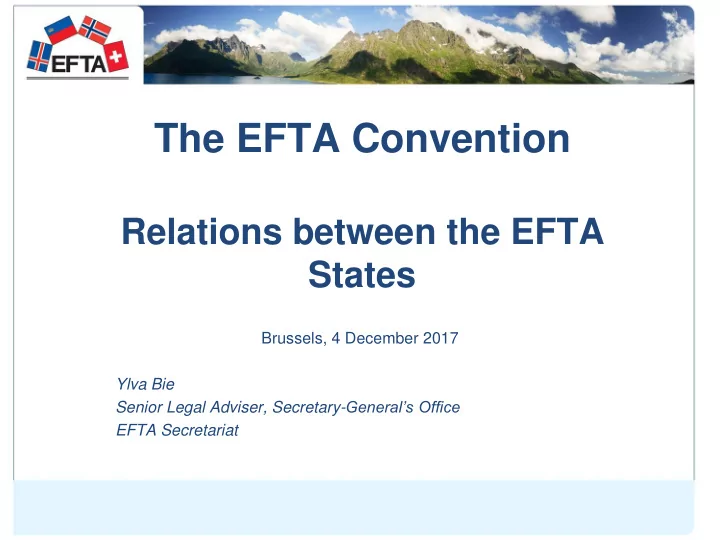

The EFTA Convention Relations between the EFTA States Brussels, 4 December 2017 Ylva Bie Senior Legal Adviser, Secretary- General’s Office EFTA Secretariat
The history of the EFTA Convention • Signed in Stockholm in 1960 Established EFTA • Developments in the 1990s leading up to the revision of the Convention • Updated EFTA Convention signed in Vaduz in 2001
A brief overview of the EFTA Convention • Integration of the principles and rules established between the EU and the EEA EFTA States in the EEA Agreement, and between the EU and Switzerland in the EU-Swiss Bilateral Agreements • Important new provisions • Regular updates of the Convention
Areas covered • Trade in goods, including agricultural products • Services and investment • Land and air transport • Movement of persons, social security and mutual recognition of diplomas • Intellectual property rights • Government procurement • Technical barriers to trade • Competition, public undertakings and monopolies, and state aid
Institutional setup, surveillance and judicial control • The Council is the highest body • Supervision • Dispute resolution through consultations • Possibility to establish an arbitral tribunal
Membership and withdrawal Article 56 : Any state may accede to the Convention Approval by the EFTA Council Association agreement Acceding Members shall apply to become a party to EFTA’s free trade agreements Article 57 : Any Member State can withdraw - 12 months notice.
Thank you! ybi@efta.int
Recommend
More recommend